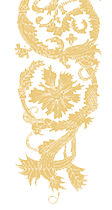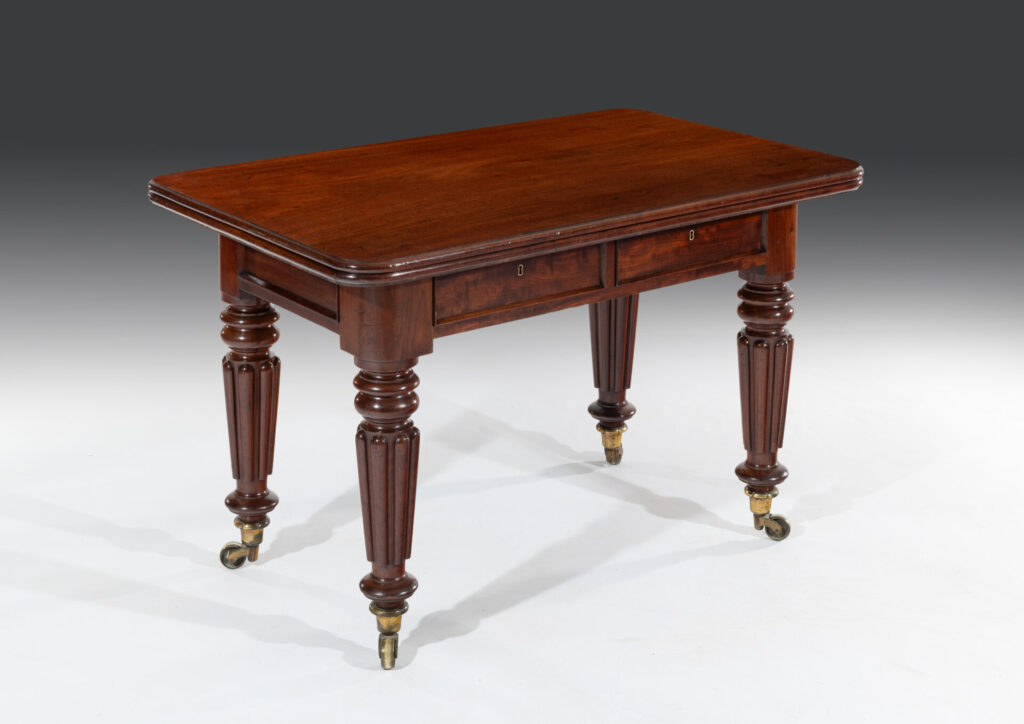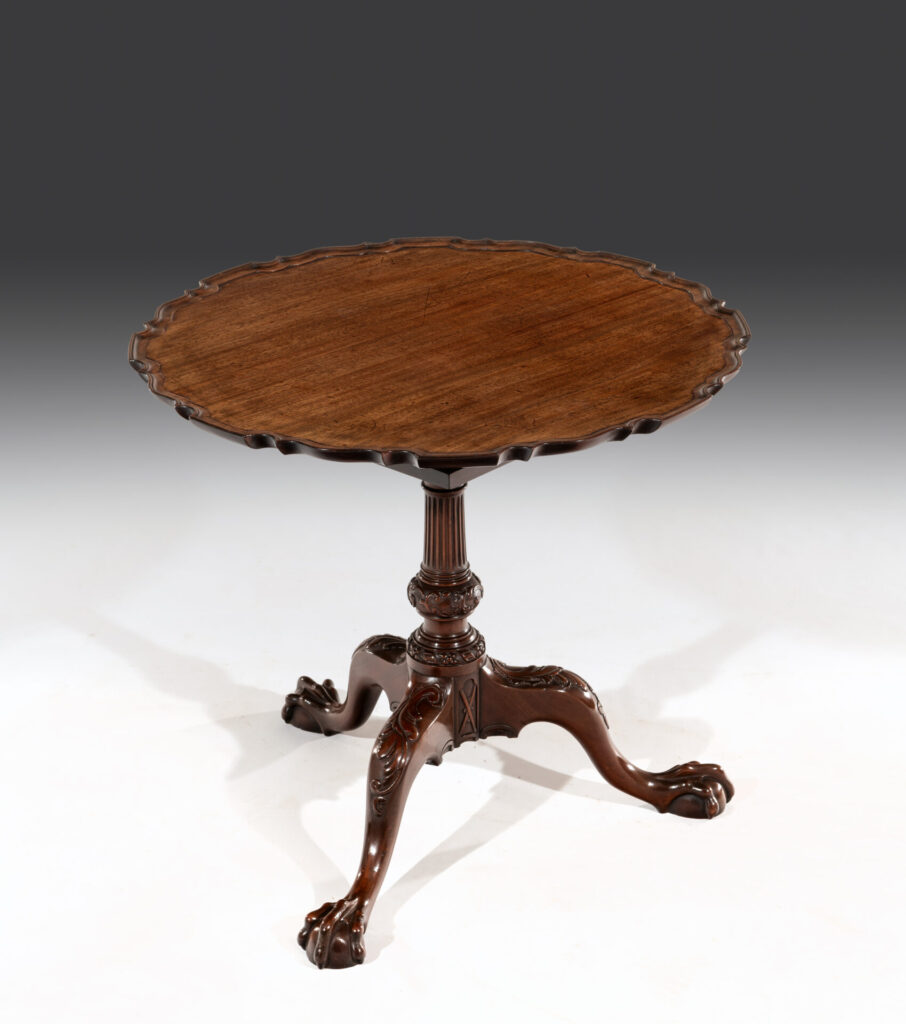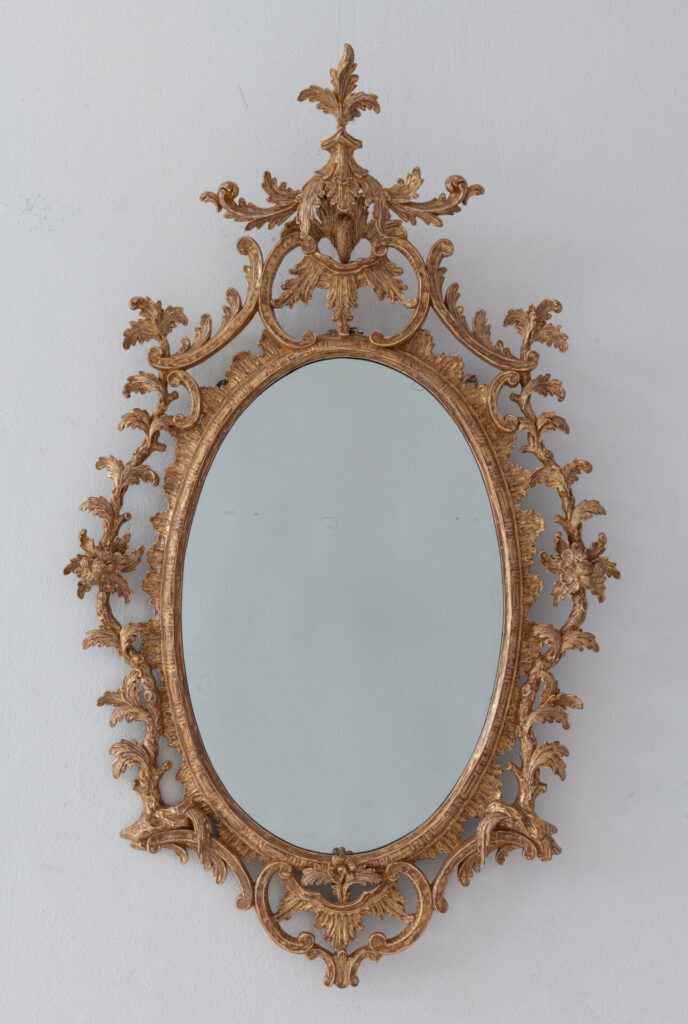George IV Regency Rosewood What-Not
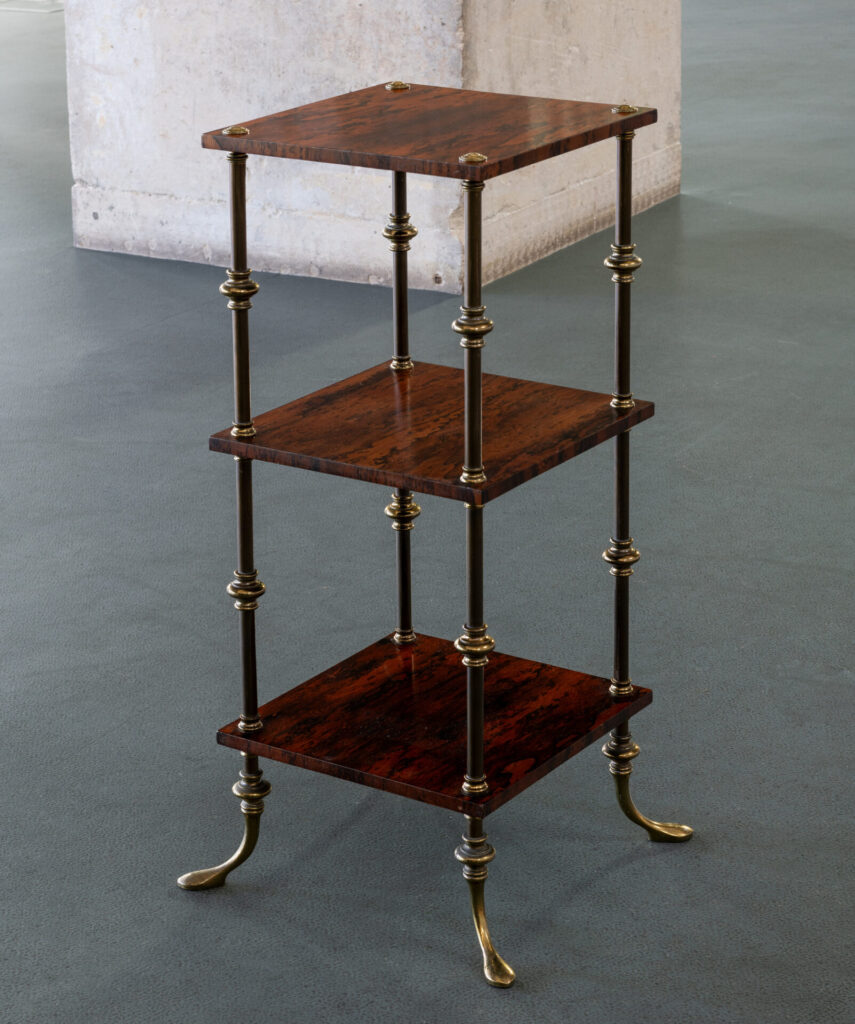
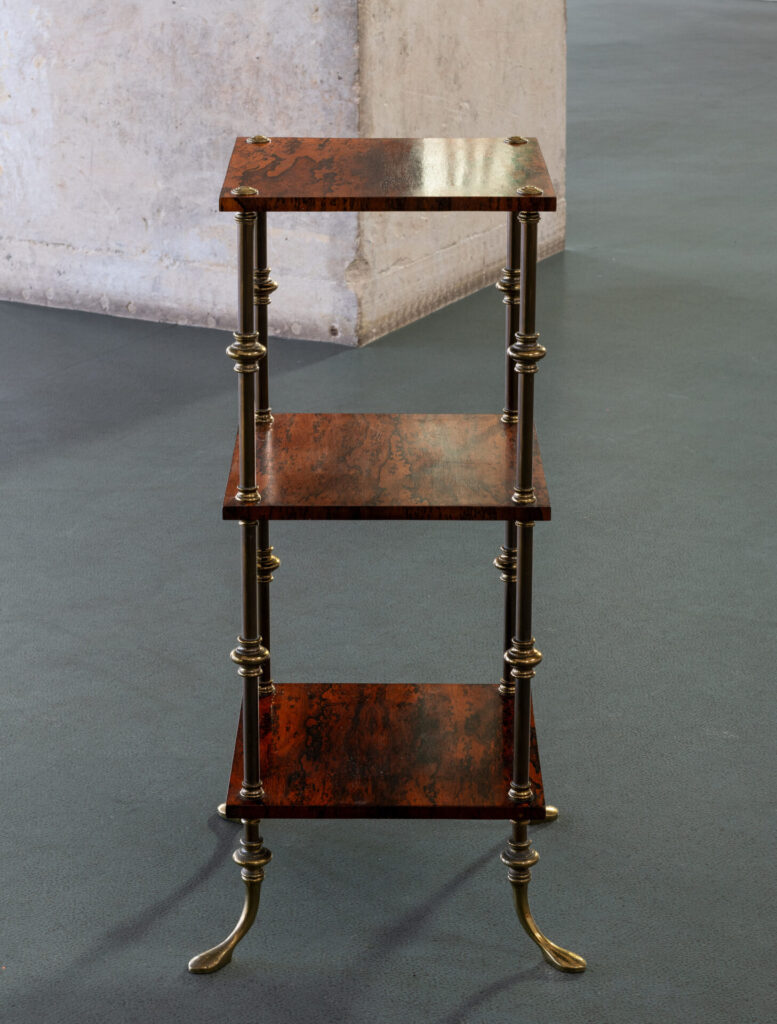
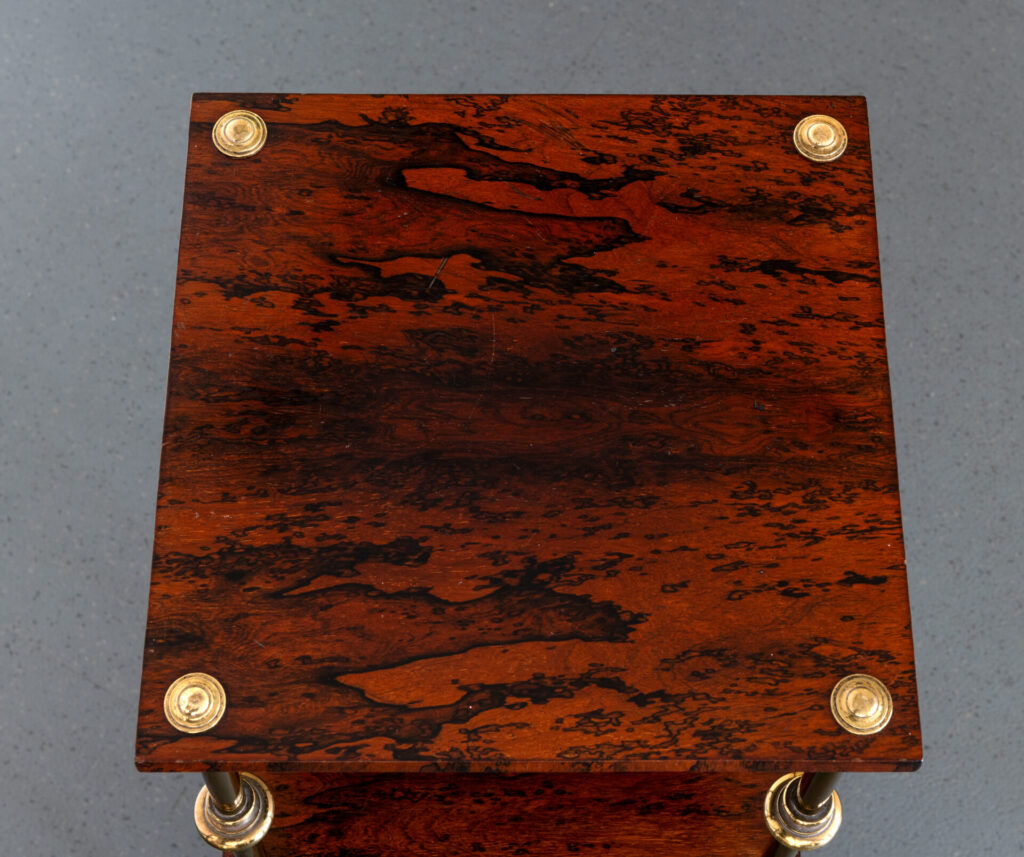
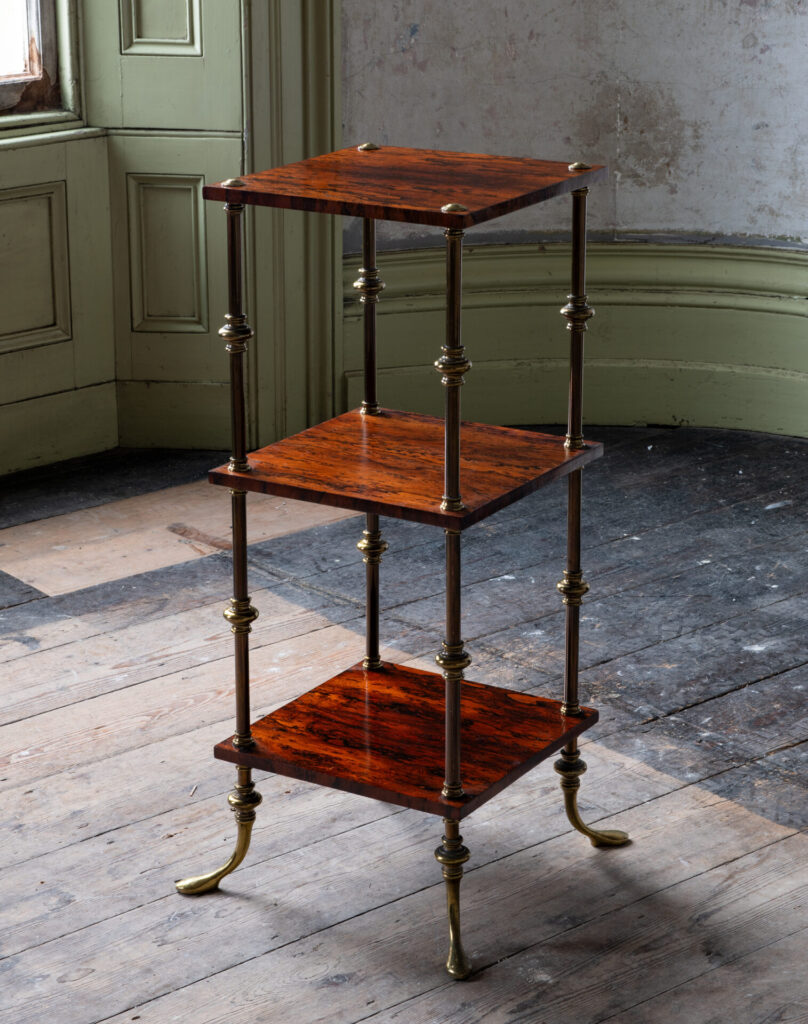
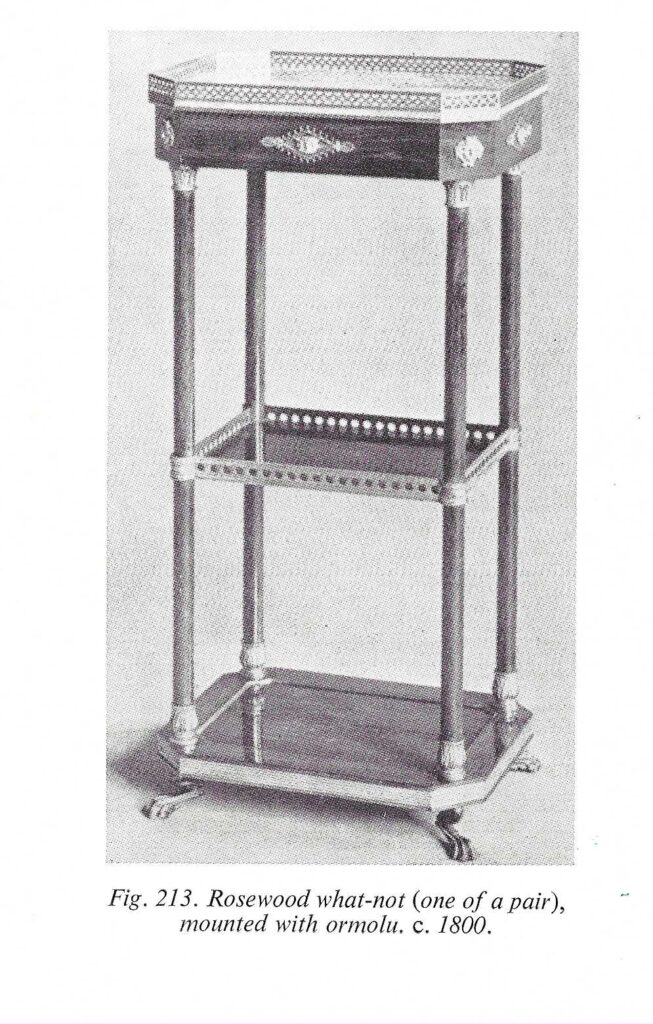
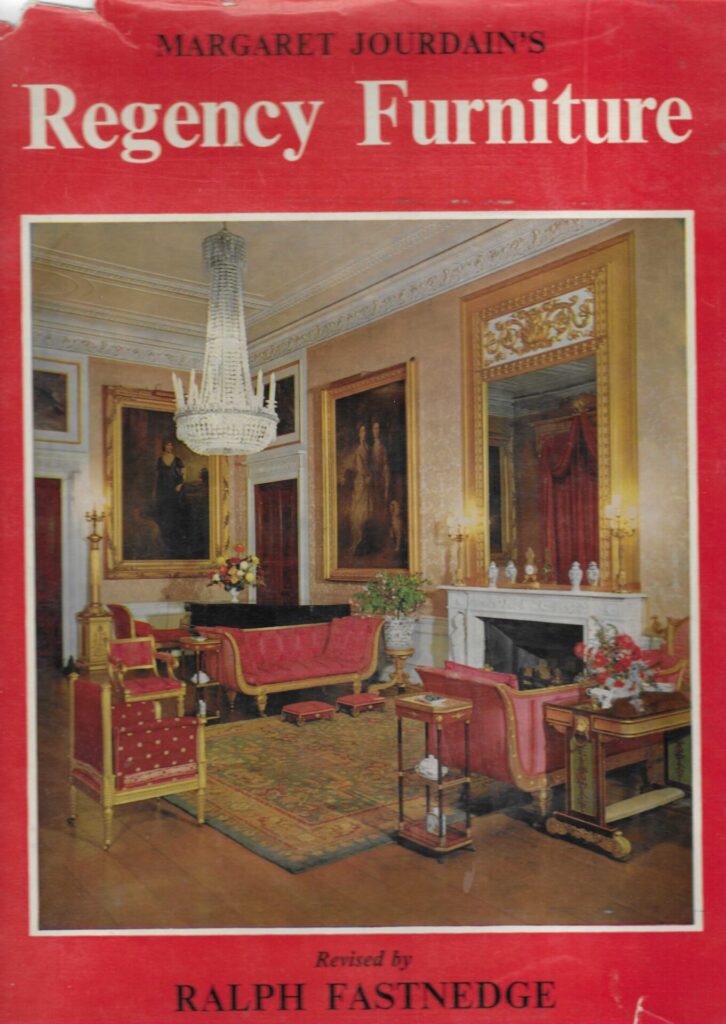
George IV Regency Rosewood What-Not
English
circa 1826 - 1836
Early 19th century rosewood 'what-not'.
The three tiers are veneered in a lively grained rosewood and book-matched which gives the nick name to 'Butterfly veneers'. The elegant construction is chic and neat with the quality of the piece evident through out. The what-not has crisply gilt brass ring turned supports, with each tier having vertically cut crossbanding to the sides. The underside of each shelf is book-matched in rosewood, which is an expensive and rare attribute to have commissioned. The what-not is raised on solid gilt brass out-swept pad feet with circular ring turned roundels to the top tier. The rosewood what-not is certainly a high grade piece of English Regency furniture.
The what-not was not illustrated in trade-catalogues until the year 1808 and early evidence of this type is the rosewood example that was fitted with shelves and mounted with ormolu and in some cases the base contained a shallow drawer or drawers.
The example given above is from 'Margaret Jourdain's' Regency Furniture, revised by Ralph Fastnedge, p.88, fig.213.
The term 'whatnot' (also spelled 'what-not' or 'wot-not') refers to a piece of open-display furniture, typically consisting of slender uprights and shelves. This design, derived from the French 'étagère, was popular in England for showcasing items like china, ornaments, and other decorative objects. The name 'whatnot' was given to the furniture because it was used to display a variety of items, including 'what-nots' or 'trifles'.
Condition
Excellent
Dimensions
Height 81.00cm (31.89 inches)
Width 32.00cm (12.6 inches)
Depth 32.00cm (12.6 inches)
Stock No: 11690
£3,650.00
In-stock